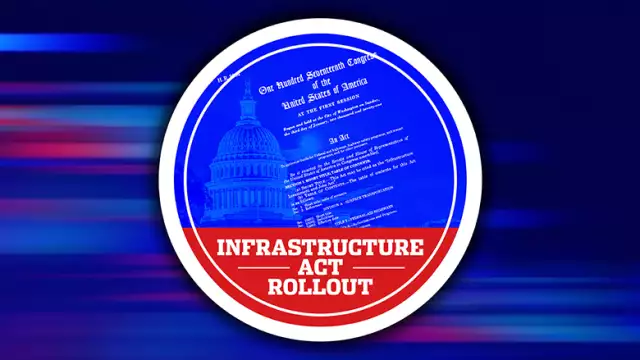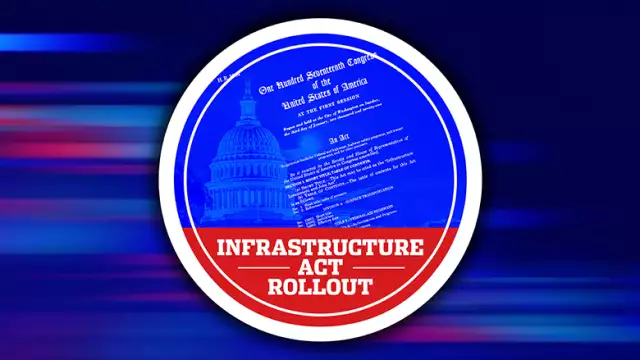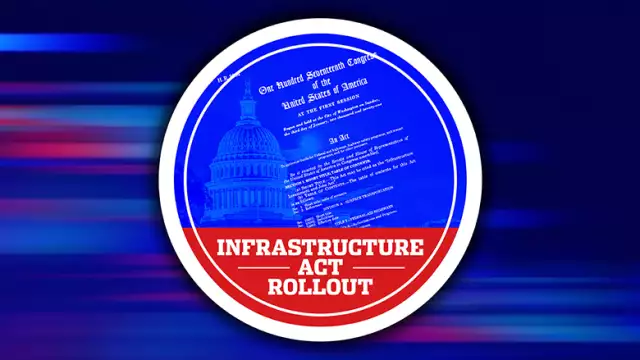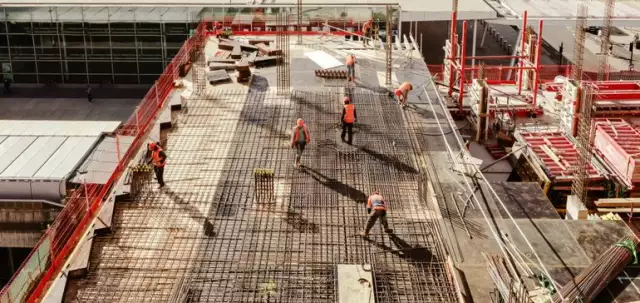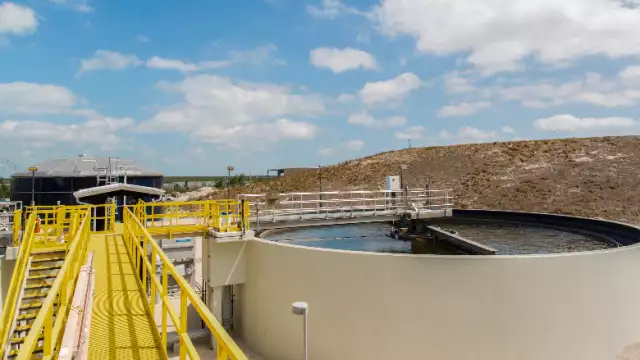At Six-Month Mark, IIJA Funds Flow but Other Provisions Spark Concerns
At Six-Month Mark, IIJA Funds Flow but Other Provisions Spark Concerns
May 16, 2022 Tom Ichniowski KEYWORDS Buy America / Federal Permitting / infrastructure funding / Infrastructure Investment and Jobs Act Order Reprints No Comments
As the Infrastructure Investment and Jobs Act marks its sixth month on the books, the Biden administration is touting the progress it has made in distributing funds from the landmark $1.2-trillion measure.
In a White House fact sheet released on May 16, officials said that since the IIJA’s enactment last Nov. 15, federal agencies have announced the release of more than $110 billion from the law for highway, transit, water and other infrastructure programs.
Those funds, the White House said, will support more than 4,300 projects.
Moreover, funding availability notices have been issued for other IIJA programs for which states and localities must complete.
Yet to come out are guidance documents for how agencies will carry out the new programs the measure creates.
Buy America Program Concerns
Industry and state officials welcome the large inflow of money, but they are raising concerns about some of the law’s requirements for the contracts the law funds. A particular focus are provisions dealing with Buy America programs.
The IIJA is a five-year measure but, given the nature of construction projects, some of the law's funding could well affect projects that will still be underway past 2026.
Construction and transportation officials note that although the IIJA was enacted last Nov. 15, states and localities—and the engineering and construction firms that carry out infrastructure projects—did not have access to the full amounts contained in the IIJA for four months.
That was because Congress was unable to approve an appropriations bill for the full 2022 fiscal year, turning instead to short stopgap spending measures.
Those temporary part-year bills blocked the release of the full IIJA amounts and also delayed the launch of new programs created by the IIJA.
That problem was rectified on March 15, with the enactment of an omnibus 2022 appropriations bill.
Jimmy Christianson, Associated General Contractors of America vice president of government relations, says, “We were delighted actually getting the bipartisan infrastructure law funding increases, as well as a lot of the new programmatic funding."
Really a Two-Month Celebration
But Christianson said in an interview with ENR that because the full IIJA funding totals have only been available since mid-March, "it’s really a two-month celebration.”
Many potential IIJA-funded project are only in the planning stages, he adds. "We're not cutting any ribbons, and that’s ultimately what the American people are going to be looking for.”
Susan Howard, American Association of State Highway and Transportation Officials director of policy and government relations, says that given the appropriations hangup, the flow of funds from federal agencies to state departments of transportation has for the most part proceeded as expected.
Howard says that for the key federal-aid highway program, state DOTs typically launch their bid-lettings in the spring for highway and bridge projects that will get underway in the summer months or in the fall, thus putting their federal aid allocations to work on specific projects.
In an interview with ENR, Howard said AASHTO did not yet have adequate data on IIJA-funded projects on which construction has begun.
Christianson says, “We look forward to seeing shovels in the ground, because the administration is making it really difficult for us to get to that point.”
One current issue deals with Buy America provisions in the law. Like earlier domestic-preference requirements, it applies to iron and steel and manufactured products but also a new category of "construction materials."
Christianson says, "We don't have a clear definition of what is and what is not a construction material."
But under the IIJA, all new IIJA-funded contracts awarded after May 14 must comply with the domestic-preference requirement.
U.S. DOT has proposed a transitional 180-day waiver of the compliance requirement. AGC has said it supports the DOT action but also said more time is needed to meet the requirement.
In May 13 comments to U.S. DOT, AASHTO also expressed concerns about the proposed 180-day Buy America waiver period. The group is recommending an extension to between 18 and 24 months.
Meanwhile, the administration continues to make funding announcements, including the Commerce Dept.'s May 13 issuance of three funding-availability notices for broadband programs.
Mitch Landrieu, the White House infrastructure implementation coordinator, said that as it moves ahead on the infrastructure act rollout, ”We’re going to go fast, but we’re not going to hurry.”
Speaking at a May 16 infrastructure conference in Washington, D.C., Landrieu also stressed the importance of creating a "way" to plan and develop projects that collaboration among state and local officials in planning projects. That collaboration should go beyond states and cities to neighborhoods, he said.
“If you get the 'way' right, you can build a million things,” said Landrieu, a former mayor of New Orleans. "If you don’t get the way right, you might build one or two nice things, if you get lucky.”
Looking at IIJA implementation, he said, “and shame on us if we don’t take this opportunity to get it right.”
